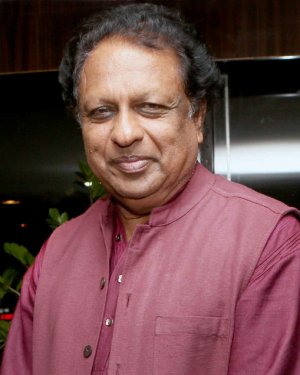
Pompeo promises continuity in India-US partnership
Behind the bewildering unpredictability of President Donald Trump, there is a group of senior policy makers, who keep an eye on the continuity of US foreign policy and connects it to the President’s postures. This is heartening, as the US has the ability to protect and promote its fundamental positions even as the President engages in his disruptive and innovative policies. These men and women, including a senior aide to the President, who wrote an anonymous op-ed in the New York Times, follow Senator Mc Caine’s dictum that the President’s views should be respected, but where they clashed with national interests, the necessary correctives should be applied at the time of implementation. Some who followed the dictum have fallen by the wayside, but others continue to keep the faith.
Secretary of State Michael Pompeo appears to be one who has the ability to implement the President’s policies by making it part of the continuum, which makes them logical and acceptable to America’s global partners. At a major policy speech at the US India Business Council in preparation for his visit to India, he traced India-US relations over the years to highlight the accomplishments and problems and proceeded to say why he truly believed that the two nations “have an incredibly unique opportunity to move forward together, for the good of both of our peoples, the Indo-Pacific region, and indeed the entire world.”
Pompeo quoted his own experience of doing business with India in Chennai and Bengaluru in the early days. Though it was tough to do business with India at that time, he was successful in promoting the interests of his company successfully. When India became independent, it was expected that the two countries would get along well, but the two countries followed different trajectories during the Cold War.
India’s non-alignment and its closed economy made things difficult and the US focused attention on other Asian partners. But things changed in 1991, when Prime Minister Rao removed the cobwebs of the past and ushered in change. India opened its doors to the world. Pompeo spoke with appreciation of the growth of India-US trade and economic co-operation. He complimented Presidents Bill Clinton, Barack Obama and George Bush for seizing the opportunity and widening and deepening relations. He mentioned the civil nuclear deal, the “Major Defense Partner” status, and US support for India’s quest for a permanent seat on the UN Security Council, “a position that the United States continues to support.”
Pompeo sought to establish that President Trump actually built on the foundation laid by his predecessors by taking defence cooperation to new heights, shaping a common vision for the Indo-Pacific and taking a tough position on Pakistan’s terrorism. He said that Modi and Trump “exchanged a lot of goodwill and a couple of hugs” during the former’s visit to the White House in 2017.
Pompeo made the surprising revelation that he and the State Department had correctly predicted that Modi would return to power because what he had done for the poorest Indians, like giving them light bulbs and cooking gas. The mandate that Modi had won opened up new opportunities for the US to work with him.
On the agenda for the future, Pompeo mentioned building a new diplomatic framework and reinvigoration of the Quad dialogue. Having China and Pakistan on the borders was more difficult than dealing with them from the seas, he sad, echoing Kissinger’s reference to India’s tough neighbourhood. He stressed that Trump’s vision for a Free and Open Indo-Pacific was based on the belief that India and the US should cooperate in maintaining a common vision for the Indo-Pacific, with democratic values and economic interests reinforcing each other. He went on to list out a number of measures taken to strengthen cooperation in defence, space, energy and trade. He did not forget to urge India to lift trade restrictions and to allow access to US technologies and goods. He concluded by expressing his hope that his conversations in India would lead to such cooperation that the two countries would work together as equals.
This is the first time that a senior Trump Administration official has attributed Trump’s India policy to the wisdom of the earlier US Presidents. This should bring comfort to those who felt that Trump did not care for the good work done in the past and that he would be following an impulsive policy, without a clear vision of India-US relations. Trump’s constant complaint about the trade imbalance with India and his immigration policy had raised doubts about a partnership developing between India and the US.
Though Pompeo’s speech is optimistic on bilateral relations and on Indo-Pacific, the fact remains that he was silent on India’s role in international relations, particularly in the context of the growth of China and Russia and the good relations India had developed with the Arabs and Israel. Though the role of Indian Americans was stressed, there was no promise on H1B visas. Support for India’s permanent membership of the UN Security Council was proforma, without any acceptable formula to accomplish it. There was also no reference to India’s purchase of Russian missile defence system or import of oil from Iran.
Pompeo has, however, set the stage for a successful visit, setting it against the backdrop of the developments from the time of Clinton to Obama. Progress may be achieved in some areas, but uncertainties will remain because of the shifting nature of President Trump’s priorities.
